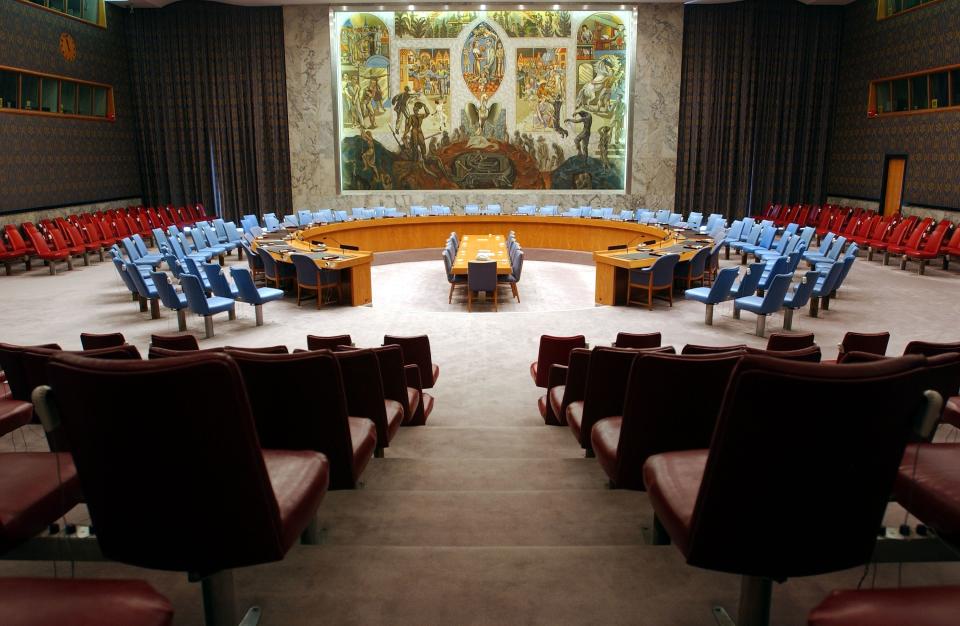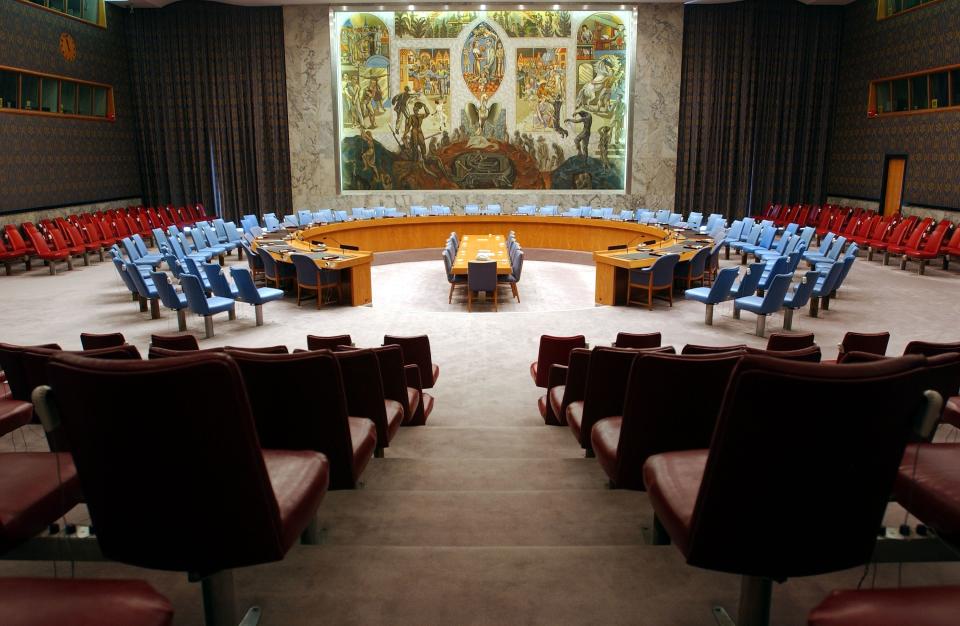UN Cuts Back on Hiring and Air Conditioning Over Tight Budget
(Bloomberg) -- Shortly after Israel’s United Nations envoy began speaking to the Security Council last month about a membership bid for Palestinians, the world body’s webcast of the historic session went dark.
Most Read from Bloomberg
US Inflation Data Was Accidentally Released 30 Minutes Early
With a BlackRock CEO, $9 Trillion Vanguard Braces for Turbulence
Putin and Xi Vow to Step Up Fight to Counter US ‘Containment’
Jamie Dimon Sees ‘Lot of Inflationary Forces in Front of Us’
Dow Average Touches 40,000 Before Pulling Back: Markets Wrap
The meeting, which culminated in a US veto, was running long and austerity measures imposed by UN officials prohibited overtime for camera operators and translators. That’s not all. Entry gates at the UN headquarters in Manhattan now close earlier, air conditioning has been throttled back even as summer temperatures start to rise and the world body has imposed a hiring freeze.
The UN has long struggled financially. Top contributors including the US are often late in making their payments, UN officials say, even as an ever-growing roster of crises worldwide increase demand for the organization’s services. Those struggles were exacerbated by the coronavirus pandemic and by the Trump administration’s decision to cut funding to humanitarian and development efforts.
The organization’s financial woes have turned “into a full-blown liquidity crisis,” Secretary-General Antonio Guterres wrote in a letter to member states in January. The UN is currently owed more than $1.7 billion, as more than a third of states haven’t completed paying their dues for this year and others haven’t even sent their 2023 contributions.
The US, the organization’s biggest contributor, and China, the second-largest, owe the UN about $762 million and $380 million respectively in assessed contributions for this year, according to deputy UN spokesperson Farhan Haq.
Washington will pay its dues once its next fiscal year starts in October, according to a spokesperson for the US mission to the UN. Li Zhimin, spokesman for China’s mission, said “China and the US differ significantly in this regard,” adding that Beijing has already paid $100 million this year as part of its payment plan.
Although some of the UN’s money-saving moves seem mostly symbolic, officials say the budget crunch is having real-world effects.
Humanitarian Crises
The UN is struggling to fulfill its mandates, such as addressing dire humanitarian crises in places like Sudan and monitoring political developments in countries like Colombia.
“For example, the UN offices in Geneva and Nairobi are struggling to keep buildings open,” Haq said, with offices closed for days at a time because there may not be enough money to operate facilities and provide security even if UN agencies have enough funds to serve those they help.
In New York, key Security Council meetings on the wars in Gaza and Ukraine also have been cut short because of financial constraints. It costs about $15,000 to run a meeting of the council, with its retinue of aides, security agents and translators.
With restrictions on holding most Security Council meetings after business hours or on weekends, diplomats have said it’s been difficult to fulfill all the requests from members. One ambassador, speaking on condition of anonymity, complained that time — and money — have been taken up with multiple meetings Russia demanded to justify its invasion of Ukraine.
Trump Factor
Behind closed doors, diplomats and UN staff warn that the US is likely to pull back its support again if voters return Donald Trump to the White House in the November election.
“The financial situation would only go from dire to worse under a Trump presidency,” said Maya Ungar, UN analyst at the International Crisis Group. “The UN is very concerned about the implications on the budget crisis — but you’re limited in how much you can really maintain your current functioning, no matter how well you plan.”
The organization is already coming up with contingency plans in the event of a Trump victory, according to UN staff members who asked not to be identified discussing internal matters.
“We expect 2025 to be as difficult as 2024,” Haq, the UN spokesman, said in a statement, while declining to comment on the US presidential election. “The UN continuously reviews the likely scenarios to adjust its operational posture based on likelihood of collections.”
The US funds more than one-fifth of the UN’s regular budget. If it scales back its funding, it would open the way for its adversary China, whose contributions make up roughly 15% of the budget, to increase its presence — and its growing influence in the world body.
Previous US disengagement from the UN allowed countries like China and Russia to seize on the “leadership vacuum” left by the US, Representative Ami Bera, a California Democrat, said at a hearing on the UN last month.
“Engagement and coordination are the answer, not retreat and isolation,” he said.
Most Read from Bloomberg Businessweek
How the ‘Harvard of Trading’ Ruined Thousands of Young People’s Lives
Milei Targets Labor Law That’s Set to Hand Banker $10 Million Severance
©2024 Bloomberg L.P.





